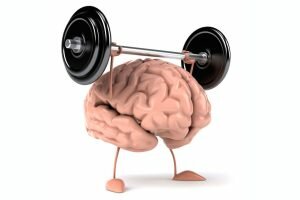Exercise and Mental Health
By Brooke Fletcher
Exercise is always looked upon for its physical or physiological benefits but what about the mental health benefits? Mental health is a large umbrella term for many conditions that people experience. It can be defined as ‘A wide range of conditions that affect the mood, thought and behaviour’. These may include, but aren’t limited to anxiety, depression, psychotic disorders, mood disorders, anorexia, personality disorders or substance abuse. Each of these require a specific exercise intervention tailored to the individual. Generally, some form of exercise or movement has better outcomes than none at all.
When working with an individual with a mental health condition, Exercise Physiologists will establish their likes and dislikes and the individual’s goals. This helps to include and empower the individual and creates a program that they will not only enjoy but are more likely to adhere to. Each condition comes with different symptoms with each having a scaling effect from mild to severe. It is for this reason each program needs to be individually tailored.

Exercise may have one or more of the following effects:
- Improve mood: Exercise induces an endorphin release giving people a slight increase in mood. It also helps the individual to be motivated in other aspects of life and helps with concentration.
- Increased energy: Exercise can actually help to increase energy levels by elevating your heart rate
- Helps with co-morbidities associated with mental health conditions. Generally speaking, when it comes to mental illness or mental health conditions, they can often come with metabolic problems as side effects, such as obesity. This may be from lack of movement or from the medications that they are prescribed.
- Empowerment: When working with an individual towards a common goal, not only does it give them something to strive towards but it gives them the ownership of reaching that goal through physically performing the exercises.
- Socialisation: Even if it is a one on one session with an Exercise Physiologist, it is getting them up and out of the house or up and off the lounge moving and socialising with another individual. Exercise can also be done in a group setting if this isn’t too daunting for the individual or if they don’t need as strict supervision.
- Improves Self-esteem: With regular exercise it is a commitment to the individual, whether they realise it or not. An increase in self-esteem can come from seeing goals be achieved or even the way they are feeling or looking with an increase in exercise.
- Improves quality of life: With improvements in all the above categories with mental, physical and physiological benefits this will overall increase and individual’s quality of life.

The benefits that exercise can have on mental health conditions is often overlooked. The above may not occur for every individual however the above just touched the surface of the benefits and each individual experience will be different. There are of course going to be barriers to exercise however that is where an Exercise Physiologist can help in overcoming these and working out the best program for the individual.
At Allied Fitness Australia we currently do a lot of work with the NDIS and see a lot of clients with Mental Health conditions. We work closely with support coordinators, family members and the clients to help reach their goals including increasing ability with activities of daily living as well as addressing other co-morbidities. For those who are unable to reach our facilities we also offer home visits.
If you do have funding with the NDIS you can access Exercise Physiology services under both the improved health and wellbeing and improved daily living categories and our dieticians can be accessed under improved health and wellbeing. If you are self-managed, Agency managed or Plan managed we work with the nominated providers in arranging service agreements through to the delivery of services.
If you would like more information on how we can help you or if you are unsure on your funding or eligibility please get in touch and organise a complimentary consultation with one of our Exercise Physiologists or dieticians today.
